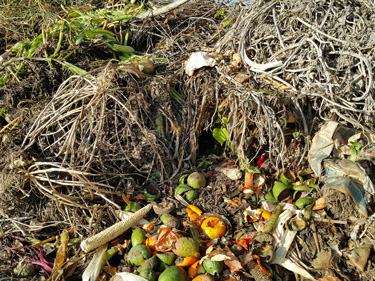Collaborative composting
People are wasteful, and we’re running out of space to dump our waste. A simple way to reduce waste is to use it to create compost! Composting improves soil ecology, saves organic waste going to landfill, and reduces the associated costs of waste disposal.
The University of Western Australia’s Turf Research Programme has come up with the ingenious idea of ‘collaborative composting’…
What exactly is compost? Compost is ideally a mixture of decayed green matter, which has finished the heat-generating phase of the decomposition cycle and is close to the material we know as humus.
In nature humus accumulates naturally as leaf litter and other dead matter accumulating on a forest floor. With time and weight of material this matter breaks down in composition and is incorporated into the soil by the action of earthworms and natural elements.
So what’s the big idea? Councils could work with businesses such as supermarkets, food markets, florists, and commercial food courts to introduce large-scale composting of organic food waste. Closed Loop, or similar, systems could be located near food hubs, grocers, and supermarkets etcetera so there is a predictable supply of waste to compost.
The organic compost produced can then be used by council groundskeepers to maintain soil and plant quality, and may also be sold or given to landscapers and residents.
The costs associated with the logistics of the composting is offset by the savings made on fertiliser, as well as fees paid for waste removal, which are generally charged by volume.
Compost put back into the ground may also be eligible for soil carbon sequestration offsets.
So why is compost important for our gardens? Apart from providing nutrient, compost plays an important role in building and maintaining soil structure. Poorly structured soils, such as clay and sand, either drain too quickly or not at all.
Regular additions of compost will slowly transform uncooperative soils into a friable loam capable of holding soil moisture, whilst allowing the free passage of air, water and nutrient.
Once soils begin to improve, beneficial soil organisms will re-populate the garden, further altering the soil chemistry to create a more balanced composition capable of sustaining a greater range of plants.
Waste collection costs lots of money. Redirecting and converting organic waste into compost will save costs and landfill space. What’s more the compost used will save the need for purchasing synthetic fertilisers. So it’s a financial and environmental win!

28-Oct-2015

Photo courtesy of Sarah O'Neil

